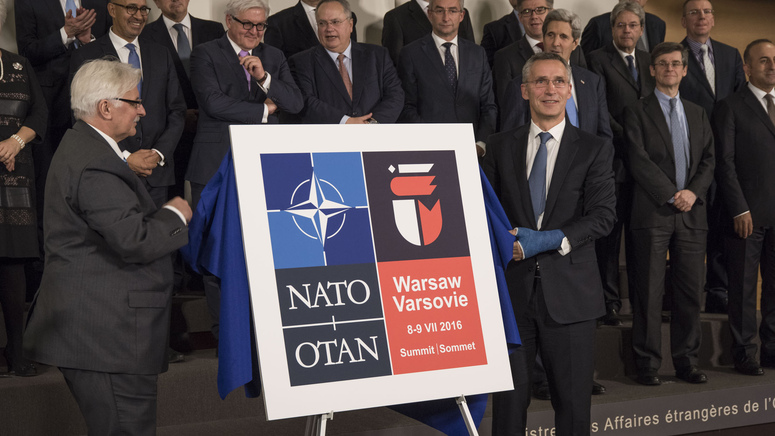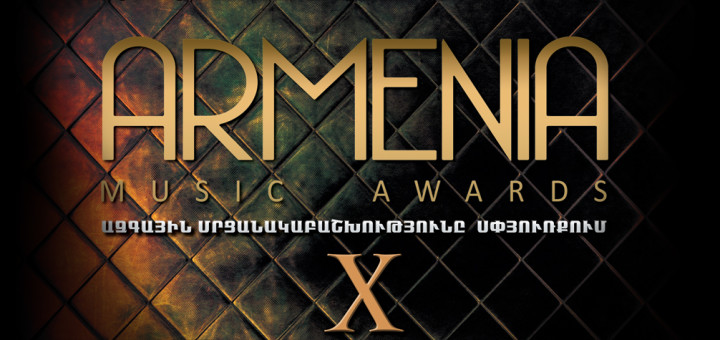
In order to overcome criticisms directed against them, those who sympathize with Armenians’ views on history and politics make a great effort to propagate the image that portrays Armenians as having always been a victimized and downtrodden people. An obsessive hostility towards Turks (who allegedly persecuted Armenians en masse) has been developed during the construction of this image. In turn, this hostility towards Turks has become one of the backbones of the narrative of Armenians being a victimized and downtrodden people. A recent commentary in the Washington Post newspaper and a reply given to it serve as an example of this narrative on the Armenians and the "cruel Turks".
Andrew Bower, a senior researcher at the National Interest Institute in the US wrote, in a letter addressed to the editor of the Washington Post newspaper,[1] that the Russia-Armenia alliance is threatening Turkey, an indispensable US ally in the fight against ISIS. Russia already has two military bases in Armenia, one of which is situated approximately 40 km from the border with Turkey.[2] Moreover, Armenia has welcomed and housed new Russian troops and weapons since December. Considering that this situation is a threat to Turkey, Bower questioned the US’s relations with Armenia.
Paul Manoukian, a writer of Armenian origin, sent a letter to the editor of the Washington Post newspaper in response to Andrew Bower’s letter.[3] In order to justify Armenia’s extremely close relations with Russia, Manoukian referred to the events that took place during World War I. In this context, Manoukian claimed that Turks brutally massacred at least a million Armenians. He further claimed that Russia was the one who ended the massacres and that whereas the US has never recognized the suffering of Armenians so far, nor blamed Turkey. As it can be seen, Manoukian responded to criticism against Armenia’s state policies by immediately referring to the rhetoric of victimization, downtroddenness, and the “Cruel Turks”, and in so doing, attempted to defuse the criticisms towards Armenia’s policies. An interesting fact should be pointed out here: Russia was one of the leading actors who incited Ottoman Armenians to a rebel against the Ottoman Empire, which led to the outbreak of the events of 1915. Considering that it was Russia who prepared the ground for the societal conflict that gripped the Ottoman Empire in its last era, portraying Russia as having been the savior of Armenians is simply incompatible with historical facts.
Another method used against criticisms is to unquestioningly declare those who do not share the views put forward by Armenians as being "anti-Armenian". Taniela Koushakji’s article constitutes a good example for this. The vice chairman of Mercury (a public affairs and strategy firm) Adam Ererli wrote in an article in the Forbes magazine about how Armenia is becoming “Putin’s Newest Satellite State”.[4] Armenia Agenda[5] editor Taniela Koushakji accused Adam Ereli of having attacked Armenians for writing such an article. According to Koushakjian, the reason why Adam Ereli wrote his article was due to the fact that the company (Mercury) which he works denies the “Armenian genocide” and that he is in cooperation with the Turkish Institute of Progress, which Koushakjan considers to be an anti-Armenian organization. Koushakji also accused Brenda Shaffer, who is a political science professor in Haifa University and a visiting scholar at Georgetown University, of attacking Armenians. In 2014 Brenda Shaffer published in the New York Times newspaper a review article stating that Armenia is “Russia’s next land grab”.[6] Koushakij, in order to refute Brenda Shaffer’s point, stated that Shaffer works as an adviser in an Azerbaijan state oil company.
Koushakjian’s response illustrates the fact that the criticisms made against Armenia's political decisions are perceived being as attacks on Armenians. The truth is, Koushakji never responded to Brenda Shaffer or Adam Erili with concrete evidence, contented himself with declaring them as being “Armenian enemies” without providing any explanation, and assumed that being part of an organization is a “guilt” of its own.
The “lists of shame" containing “anti-Armenians", prepared by members of the Armenian diaspora, constitute another example to this extreme mindset. For example, Assistant Professor Christopher Gunn of Coastal Carolina University, who does not delve into the dispute over the nature of the events of 1915 but instead focuses his studies on Armenian terrorist groups like ASALA, has nevertheless been included in such lists.
Authors who accuse those who do not think as they do as being “anti-Armenians”, do not in any way define what exactly constitutes “anti-Armenianness”. What is done instead is to attempt to show Armenians as being always right or justified by overlooking the merits of the cases at hand, by using authors’ personal information, or by making references to unfounded accusations.
Works of academics such as Stefan Ihrig and Lawrence Douglas are also used to support the rhetoric of victimization and downtroddenness. The works of these academics put forth a narration that the Armenians were oppressed by not only the Turks but also by other parties.
The Historian Stefan Ihrig, in his book “Germany and the Armenians from Bismarck to Hitler”, establishes a link between the Holocaust and the "Armenian genocide". Ihrig claims that the Germans were enthralled by the post-World War I belief that the Armenian genocide allowed the establishment of the newly born Republic of Turkey. According to Ihrig, the Nazis, during the Holocaust, saw the Armenians as "eastern Jews" and were at the same ranks as the Jews and even claimed that they were a lower race than the Jews (Since they were further mistreated than the Jews, Ihrig calls the Armenians as "Über Jews").[7]
However, this assertion by Ihrig at best reveals his ignorance, and is at worst a distortion of reality. During World War I, one of the leaders of the Armenian group, Drastamat Kanayan (Dro)[8] was at the head of the armed struggle against the Ottoman Empire. It is noteworthy to mention his activities during World War II. In this sense, Dro spearheaded the Armenian Nazi Legion consisting of 20,000 soldiers and shared his experiences on the Armenian Insurrection with Adolf Hitler, whom he met on a number of occasions. Due to his actions, the Nazi’s referred to Dro as “the Jew Hunter". There were two main reasons behind Dro’s cooperation with the Nazis. The first reason was to maintain close relations between Armenia and Germany to ensure that the Nazis would attack Turkey through Armenia. The second reason was to make sure Armenians were considered as being worthy in Hitler’s classification of races.[9]
The relationship between the Nazis and Armenians date back to before World War II. In 1934, Dr. Paul Rohrbach and intellectuals of Armenian origin, such as Artashes Aeghio, in collaboration with Nazi intellectuals, published a book titled “Armenian Aryan”,[10] demonstrating that Armenians and Germans came from the same race. Similarly, they also made studies pointing out that the Armenian language is an Indo-European language. Moreover, in 1933, Germany’s Minister of Propaganda Joseph Goebbels had formally declared that Armenians were Aryan. These examples reveal how wrong Ihrig’s assessments were about Armenians during World War II.
Those who have embraced the Armenians views, like Stefan Ihrig and Lawrence Douglas who has backed Ihrig’s opinions, reinforce the "oppressed and victimized identity of Armenians" which constitutes the grounds for hatred and violence. The obsessive desire to keep this identity alive is the main cause behind the increase in extremist thoughts, even in our days. For this reason, it is not surprising that opinion leaders in the Armenian diaspora like the California Courier editor and Armenian "Artsakh" Fund President Harut Sassounian make calls for violence.[11]
The 10th Armenian Music Awards ceremony, to which Sasunyan also attended, has been instrumental in propagating the use of the Armenian rhetoric. The ceremony, to which 4,500 guests attended, was held on February 27, 2016 in the Kremlin Kevorkiev Hall and was broadcasted live from Armenia’s public television. Among the special guests and organizers were Armenia Future Magazine representative other prominent names such as Harut Sassounian, Russian MP Vladimir Zhirinovsky, known for his nonsensical declarations, and world-famous violinist and conductor Sergei Smpati. “Honorary” guests who were unable to attend the ceremony, such as French parliamentarian Valerie Boyer[12] and Serj Tankian,[13] expressed their opinions through a video call or a representative.
The speech delivered by Zhirinovsky, after receiving his award, was particularly noteworthy. Here are some excerpts from his remarks:
“The day will come when Armenians will celebrate their festivals in the territory of liberated Western Armenia. That could be a festival bearing the name of your holy mountain — Mount Ararat — and could take place in Kars, Ardahan, Sassoun or Trabzon. After the downing of the Russian jet, I would have ordered a powerful attack on Turkey. Today, very little would have remained of Turkey…. I wish the dream of Armenians worldwide would become a reality; that those who committed that horrible genocide on April 1915, during World War I, would be punished.”[14]
Similarly, Zhirinovsky stated that Turks should go back to Central Asia, which he indicated was their real homeland, and leave Anatolia to Armenians, Kurds, and Greeks. Following Zhirinovsky’s speech, Sassounian said that although 100 years have passed since the Armenian genocide, they wouldn’t give up their rights even after 1000 years. Sassounian’s understanding of 1000 years of struggle evokes Hitler's dream of a Nazi Germany that would last 1000 years. Both Sassounian and Hitler share the same conception of unquestioned hatred and a mentality that justifies any action no matter how extreme it might be. Extremists like Sassounian and those who pay heed to their words (and unfortunately too many Armenians do pay heed) prepare themselves and their followers for a hatred, hostility and violence that will last 1000 years.
According to Sassounyan, just as the Ottoman Empire did, Turkey will collapse due to internal and external pressures, and when that day comes, Armenians should be prepared to take advantage of this opportunity to liberate their historic lands. For this, Armenia must, according to Sassounyan, become a strong economic, political, and military power. The broadcast of such dangerous rhetoric by Armenia's official television channel is an extremely worrisome development.
* Photo source: http://http://www.thecaliforniacourier.com/4500-guests-attend-special-armenian-genocide-program-in-kremlin-hall/7/
[1] https://www.washingtonpost.com/opinions/the-russia-armenia-alliance-is-threatening-turkey-a-critical-us-ally/2016/02/26/18289900-da5f-11e5-8210-f0bd8de915f6_story.html
[2] http://www.bilgesam.org/Images/Dokumanlar/0-66-20141212541170.pdf
It has come to a mutual agreement to extend Moscow Erevan Treaty dated March 16, 1995 to 49 years which aims to build a Russian military base in Armenia in 2010 and stay there. Moreover, an agreement was signed between two governments in August 20, 2010. Within the agreement effective on July 6, 2011, this base will be deployed in Armenia until 2044
[3] https://www.washingtonpost.com/opinions/armenias-alliance-with-russia-makes-perfect-sense/2016/03/01/1949c322-df0a-11e5-8c00-8aa03741dced_story.html
[5] Armenian Agenda is the news blog of the Armenian Assembly of America. http://www.armenianagenda.com/about
[8] Antranig Chalabian, ‘Dro’ Drastamat Kanayan: Armenia’s First Defence Minister of the Modern Era
[9] According to Simon Vratsian (Along Life’s Pathways), an influential wing of the Nazi Party wanted to classify Armenians as not “Indo-European”, but “listed among the Asiatic peoples, which meant a race unworthy of living.
[10] Dr. Paul Rohrbachand and Artashes Abeghian, Armenian-Aryan.
[11] http://avim.org.tr/en/Yorum/THERE-MAY-BE-HOPE-LET-S-BE-OPTIMISTIC-ABOUT-THE-RESOLUTION-OF-THE-TURKISH-ARMENIAN-CONTROVERSY
http://avim.org.tr/tr/Yorum/BIR-RADIKAL-ERMENI-PORTRESI-SASUNYAN-IN-ACIK-NEFRETI
http://avim.org.tr/tr/Yorum/SASSOUNIAN-IN-ORTUK-NEFRET-VE-SIDDET-RASYONALIZASYONU-Aslan-Yavuz-SIR
[12] She is the member of the parliament who submitted a bill which did not come into force because it was found ‘unconstitutional’ by the French Constitutional Council; yet accepted by the French Parliament. The aforementioned bill foresaw a one-year-prison sentence and/or a fine of 45 thousand Euros for those who if they deny, humiliate or trivialize the existence of the Armanian Genocide in the context of ‘Denial Law’. http://www.assemblee-nationale.fr/13/propositions/pion3842.asp
[13] Serj Tankian is the lead singer of the music group System of a Down. In 2004 they wrote on concert tickets "Dogs and Turks are forbidden to enter". The group is widely recognized for their Turkish hostility. http://www.tetedeturc.com/home/spip.php?article4522
© 2009-2025 Center for Eurasian Studies (AVİM) All Rights Reserved
No comments yet.
-
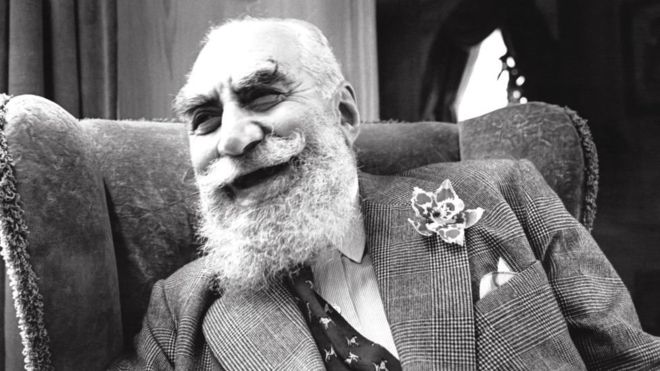 COMMEMORATIVE STAMPS FOR GULBENKIAN
COMMEMORATIVE STAMPS FOR GULBENKIAN
AVİM 19.04.2019 -
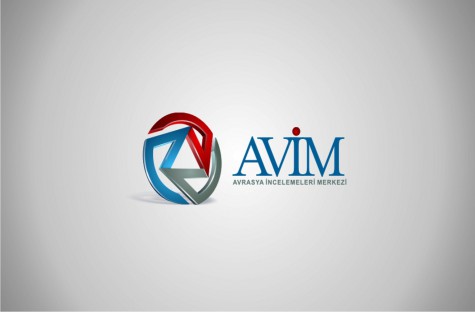 ARMENIA COUNTRY GENDER ASSESSMENT REPORT
ARMENIA COUNTRY GENDER ASSESSMENT REPORT
Şakire (FURTUN) TAHNAL 26.08.2015 -
FORMER ARMENIAN FOREIGN MINISTER V. OSKANIAN IS INCRIMINATED
Alev KILIÇ 03.10.2012 -
 ARMENIAN CLAIMS DISMISSED BY THE EUROPEAN COURT OF HUMAN RIGHTS
ARMENIAN CLAIMS DISMISSED BY THE EUROPEAN COURT OF HUMAN RIGHTS
Alev KILIÇ 18.12.2013 -
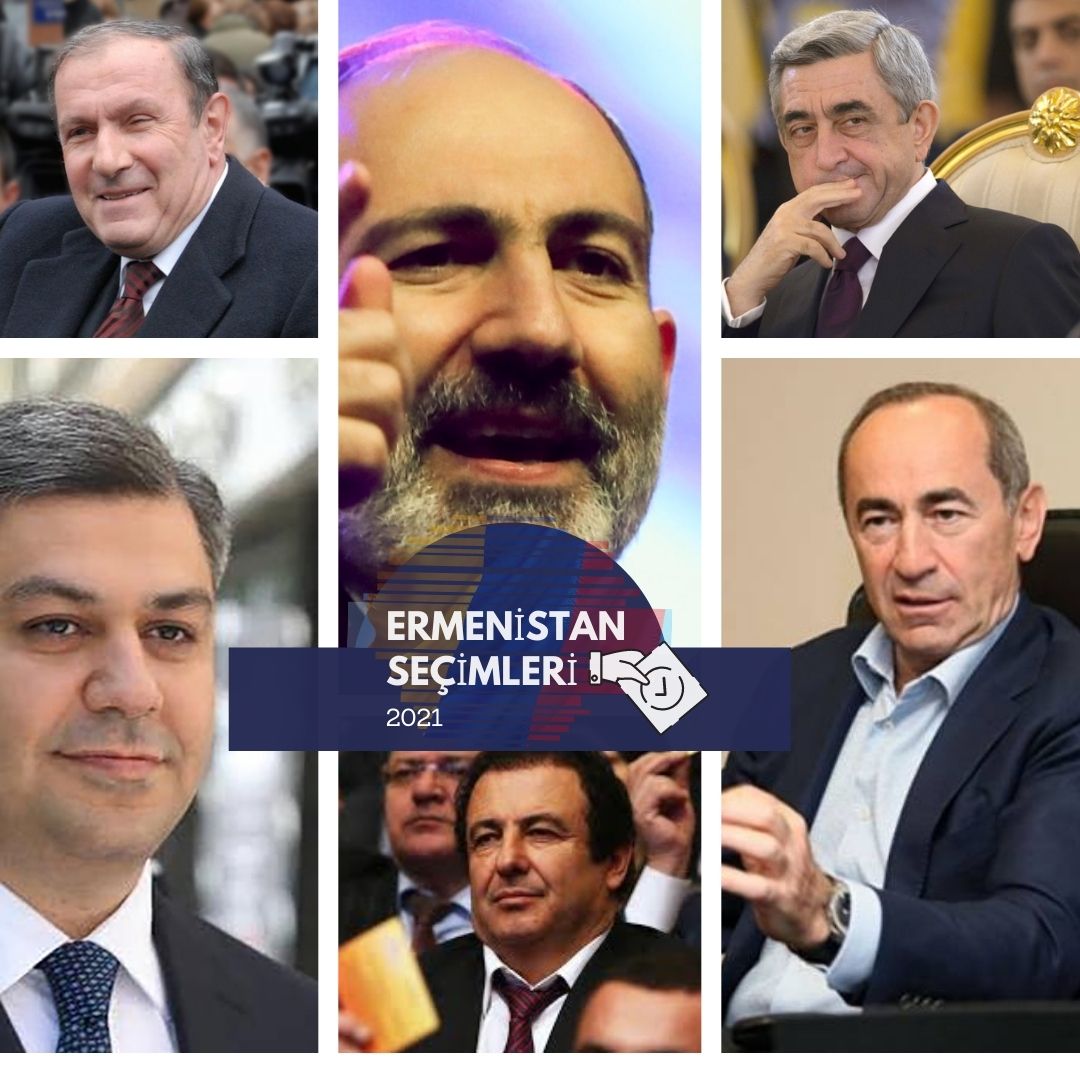 APPROACHING EARLY ELECTIONS IN ARMENIA
APPROACHING EARLY ELECTIONS IN ARMENIA
Tutku DİLAVER 18.06.2021
-
25.01.2016
THE ARMENIAN QUESTION - BASIC KNOWLEDGE AND DOCUMENTATION -
12.06.2024
THE TRUTH WILL OUT -
27.03.2023
RADİKAL ERMENİ UNSURLARCA GERÇEKLEŞTİRİLEN MEZALİMLER VE VANDALİZM -
17.03.2023
PATRIOTISM PERVERTED -
23.02.2023
MEN ARE LIKE THAT -
03.02.2023
BAKÜ-TİFLİS-CEYHAN BORU HATTININ YAŞANAN TARİHİ -
16.12.2022
INTERNATIONAL SCHOLARS ON THE EVENTS OF 1915 -
07.12.2022
FAKE PHOTOS AND THE ARMENIAN PROPAGANDA -
07.12.2022
ERMENİ PROPAGANDASI VE SAHTE RESİMLER -
01.01.2022
A Letter From Japan - Strategically Mum: The Silence of the Armenians -
01.01.2022
Japonya'dan Bir Mektup - Stratejik Suskunluk: Ermenilerin Sessizliği -
03.06.2020
Anastas Mikoyan: Confessions of an Armenian Bolshevik -
08.04.2020
Sovyet Sonrası Ukrayna’da Devlet, Toplum ve Siyaset - Değişen Dinamikler, Dönüşen Kimlikler -
12.06.2018
Ermeni Sorunuyla İlgili İngiliz Belgeleri (1912-1923) - British Documents on Armenian Question (1912-1923) -
02.12.2016
Turkish-Russian Academics: A Historical Study on the Caucasus -
01.07.2016
Gürcistan'daki Müslüman Topluluklar: Azınlık Hakları, Kimlik, Siyaset -
10.03.2016
Armenian Diaspora: Diaspora, State and the Imagination of the Republic of Armenia -
24.01.2016
ERMENİ SORUNU - TEMEL BİLGİ VE BELGELER (2. BASKI)
-
AVİM Conference Hall 24.01.2023
CONFERENCE TITLED “HUNGARY’S PERSPECTIVES ON THE TURKIC WORLD"

